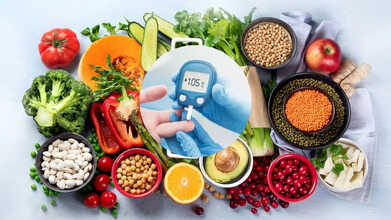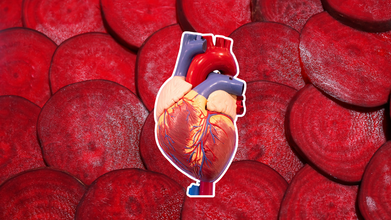- Health Conditions A-Z
- Health & Wellness
- Nutrition
- Fitness
- Health News
- Ayurveda
- Videos
- Medicine A-Z
- Parenting
Fact Check: Does Aluminum In Vaccines Cause Food Allergies As RFK Jr Claims?

Credits: AP, Canva
Health Secretary Robert F Kennedy Jr. at a conference on Monday claimed that aluminum in vaccines cause food allergies. This is not the first time one is hearing about this, as his campaign against the aluminum has been an old one. In fact, in September, President Donald Trump said he wanted aluminum removed from vaccines.
As a result, a month later, the Centers for Disease Control and Prevention (CDC), appointed an advisory committee that said in a document that the CDC could study whether either of two aluminum adjuvants in childhood vaccines could increase the risk of asthma. On fact, a draft agenda for its December meeting also includes a discussion of "adjuvants and contaminants".
On Monday, RFK Jr. said that while there is no science backing the connection, he would want researchers to look at it because as per him, their use "fit the timeline perfectly". "We don't have the science to say this is an effect or not, or maybe other things like, for example, pesticides that fit the same timeline," he said at the conference that was focused on food allergies.
What Does The Science Say On Aluminum's Link With Food Allergies?
As per CDC, an adjuvant is an ingredient used in some vaccines that help create a stronger immune response in people receiving the vaccine. This means, the aluminum helps the vaccine work better. CDC notes that adjuvants help the body to produce an immune response strong enough to protect the person from the disease he or she is being vaccinated against. The CDC also states that adjuvants have been used safely in vaccines for decades.
The vaccines that contain aluminum adjuvants are manufactured by GSK Plc, Merck & Co., Pfizer Inc., and Sanofi Sa. These vaccines are used to protect children as well as adults against diseases like polio, hepatitis A and B, human papillomavirus, diphtheria, tetanus, pertussis, meningitis, and pneumonia.
However, as per a 2022 observational study titled Association Between Aluminum Exposure From Vaccines Before Age 24 Months and Persistent Asthma at Age 24 to 59 Months, there were possible relationship between the two, though the study did mention that "further investigation is needed". Though, this study has been contradicted by another 2023 study conducted by Denmark's public health agency found no such relation between aluminum and asthma.
RFK Jr. however, demanded that the Annals of Internal Medicine medical journal must retract the Danish study that found no such relation between aluminum and asthma, though the editors of the journal refused.
In fact, the American Academy of Pediatrics also noted that there is no credible link between aluminum in vaccines and the development of food allergies. In a Facebook post, the American Academy of Pediatrics noted: "There is no credible link between aluminum in vaccines and the development of food allergies, including peanut allergies. Peanut allergy risks are influenced by several factors, including genetics or delayed introduction of peanuts during infancy. Pediatricians are always available to offer support, guidance and answer any questions parents may have about vaccines and allergies."
Want To Lower Your Risk Of Type 2 Diabetes? Try These 3 Diet Plans

Credits: Canva
A number of healthy diets have been linked to a lower risk of type 2 diabetes, no matter a person’s ethnic background. Researchers suggest that these eating habits, which emphasize fruits, vegetables, and whole grains, “can be promoted across all populations.” The analysis looked at 33 studies involving 826,000 people, focusing on three specific diets.
Diet Plans To Lower Risk Of Type 2 Diabetes
These three diets, as per the researchers from the University Of Cambridge told us three diets that can lower the risk of type 2 diabetes:
Mediterranean Diet: Focuses on plenty of olive oil, vegetables, fruits, nuts, and fish, following the traditional eating patterns of Mediterranean countries.
Alternative Healthy Eating Index (AHEI): Highlights a diet rich in fruits, vegetables, whole grains, and healthy proteins and fats, aiming to reduce the risk of chronic illnesses.
DASH Diet: Created to lower blood pressure, this diet emphasizes fruits, vegetables, whole grains, low-fat dairy, and lean proteins, while limiting intake of saturated fats, cholesterol, and salt.
What Is The Mediterranean Diet?
The Mediterranean diet is based on traditional foods from countries around the Mediterranean Sea. It prioritizes vegetables, fruits, whole grains, legumes, nuts, and olive oil as the main fat source, while limiting red meat, sweets, and processed foods. Moderate portions of fish, poultry, eggs, and low-fat dairy are included, with a focus on fresh, minimally processed ingredients.
What Is Alternative Healthy Eating Index (AHEI)?
The AHEI is a dietary scoring system created by Harvard researchers to encourage healthy aging and reduce chronic disease risk. It promotes a diet rich in vegetables, fruits, whole grains, nuts, legumes, and healthy fats, while discouraging red and processed meats, sugar-sweetened beverages, and high sodium intake. A higher AHEI score reflects better adherence to a healthy diet.
What Is The DASH Diet?
The Dietary Approaches to Stop Hypertension (DASH) diet is designed to lower blood pressure and improve heart health. It focuses on nutrient-rich foods like fruits, vegetables, whole grains, low-fat dairy, and lean proteins, while limiting saturated fat, cholesterol, sodium, red meat, sweets, and sugary drinks. Nutrients like potassium, calcium, and magnesium are emphasized to support cardiovascular and overall health.
Impact on Type 2 Diabetes Risk
The study found that people who followed these diets most closely had a significantly lower risk of developing type 2 diabetes than those with the lowest adherence. Specifically, the DASH diet lowered the risk by 23%, the Mediterranean diet by 17%, and the AHEI by 21%.
Type 2 diabetes occurs when insulin does not function effectively, causing high blood sugar. Lifestyle interventions, such as adopting these healthy diets and exercising, can help lower blood sugar levels and reduce dependence on medication.
Benefits Across Ethnic Groups
The advantages of these diets appeared consistent across African, Asian, European, and Hispanic populations. Researchers stated, “Major ethnic groups benefit equally from higher adherence to these dietary patterns,” though they noted more research is needed to tailor recommendations for specific populations.
The findings are scheduled to be presented at the European Association for the Study of Diabetes (EASD) conference in Vienna this September.
Are Diet Sodas Really Safe? New Research Points To Liver Risk

Credits: Canva
Most people assume that low- or no-sugar drinks are a healthier alternative to regular sodas, but new research suggests that might not be the full picture. A large-scale study presented at UEG Week 2025 found that both sugar-sweetened beverages (SSBs) and low- or non-sugar-sweetened beverages (LNSSBs) are linked to an increased risk of developing metabolic dysfunction-associated steatotic liver disease (MASLD), a condition previously known as non-alcoholic fatty liver disease.
What Is MASLD?
According to the Cleveland Clinic, MASLD—short for metabolic dysfunction-associated steatotic liver disease, is a condition in which extra fat accumulates in the liver. It was previously called nonalcoholic fatty liver disease (NAFLD). Unlike liver damage caused by heavy drinking, MASLD is linked to metabolic risk factors such as obesity, type 2 diabetes, high blood pressure, and high cholesterol. If left untreated, it can progress to more serious liver problems.
What The Study Found
Researchers analyzed data from 123,788 participants in the UK Biobank who did not have liver disease at the start of the study. Participants reported their beverage consumption through multiple 24-hour dietary questionnaires, giving researchers insight into how both sugary and “diet” drinks might affect liver health.
The results were striking: individuals consuming more than 250 grams per day of either SSBs or LNSSBs faced significantly higher risks of MASLD, about 60% higher for LNSSBs and 50% higher for SSBs. Over a median follow-up of 10.3 years, 1,178 participants were diagnosed with MASLD, and 108 died from liver-related causes. Interestingly, LNSSBs, but not SSBs, showed a notable link to liver-related mortality. Both drink types were also tied to increased liver fat.
Understanding MASLD and Its Growing Impact
MASLD occurs when excess fat builds up in the liver, which can eventually lead to inflammation, fatigue, abdominal pain, and loss of appetite. Once considered less common, MASLD has now become the most widespread chronic liver disease globally, affecting more than 30% of the population. It is also emerging as a leading cause of liver-related deaths worldwide.
Lead author Lihe Liu emphasized, “SSBs have long been scrutinized, while their ‘diet’ counterparts are often seen as a healthier choice. Our study shows that both types of beverages are widely consumed, yet their effects on liver health have not been fully understood.”
Liu added, “Even modest consumption of LNSSBs, like a single can per day, was linked to a higher risk of MASLD. These findings challenge the perception that ‘diet’ drinks are harmless and highlight the need to reconsider their role in our diets, especially as MASLD continues to grow as a public health concern.”
Why Both Sugary and Diet Drinks May Harm the Liver
The researchers explained potential mechanisms behind the risks. SSBs, with their high sugar content, can spike blood glucose and insulin, promote weight gain, and increase uric acid levels, all contributing to liver fat accumulation. LNSSBs may affect liver health differently: by altering the gut microbiome, disrupting feelings of fullness, triggering sugar cravings, or even stimulating insulin secretion.
Water Remains the Safest Choice
Experts recommend limiting both sugar-sweetened and artificially sweetened beverages. Replacing either type with water showed a significant reduction in MASLD risk, about 13% for SSBs and 15% for LNSSBs. Simply switching between SSBs and LNSSBs did not reduce risk.
The researchers plan to investigate causal mechanisms more deeply with long-term studies, including randomized and genetic trials. They aim to better understand how sugar and its substitutes interact with the gut microbiome and influence liver disease.
This Vegetable Could Prevent Arterial Plaque Buildup

Credits: Canva
Arterial plaque buildup is one of the biggest drivers of heart disease, yet most people don’t realise how silently it develops. When fatty deposits, cholesterol, calcium, and cellular waste accumulate along the artery walls, they gradually harden and narrow the vessels, a condition known as atherosclerosis. This restricts blood flow, makes the heart work harder, and increases the risk of heart attack and stroke.
While medication and lifestyle changes are standard recommendations, growing research, including a study by the University of Sunshine Coast, Australia, suggests that one everyday food may offer surprising protection: beetroot.
Why Arterial Blockage Happens
Plaque develops over years. High levels of LDL cholesterol damage the artery lining, allowing lipids to stick and form deposits. Inflammation accelerates this process, making the plaque harder and more unstable. When a plaque ruptures, it can trigger a clot that blocks blood flow completely, leading to a heart attack. Because early atherosclerosis has almost no symptoms, prevention becomes essential.
Beetroot: A Natural Artery-Friendly Food
Beetroot has emerged as one of the most heart-friendly foods due to its exceptional nutritional profile. Rich in nitrates, antioxidants, fibre, minerals, and bioactive compounds, it is being studied for its ability to influence blood pressure, reduce inflammation, and possibly slow arterial stiffening, all key factors in preventing plaque formation.
Lowers Blood Pressure Naturally
One of the best-researched benefits of beetroot is its effect on blood pressure. Dietary nitrates in beets convert into nitric oxide, a molecule that helps arteries relax, expand, and carry blood more efficiently. Clinical studies show that drinking beetroot juice can lower systolic blood pressure by 4–10 mmHg within hours. Over time, this improved vascular flexibility may reduce strain on the heart and keep arteries healthier.
Reduces Inflammation, a Key Driver of Plaque
Chronic inflammation is a major contributor to plaque buildup. Beetroots contain betalains, powerful antioxidants with anti-inflammatory properties. Research suggests these compounds may help lower markers of inflammation in the body, ultimately slowing the progression of arterial damage.
May Limit Arterial Stiffness
Arterial stiffness is a strong predictor of heart attack and stroke. Studies have found that beetroot juice can reduce arterial stiffness in both young adults and older individuals. More flexible arteries allow for smoother blood flow, reducing the pressure that contributes to plaque formation and rupture.
Improves Muscle Recovery and Heart Efficiency
Beetroot has been found to improve oxygen efficiency in the body, meaning muscles — including the heart — need less effort to perform the same tasks. This can indirectly protect the cardiovascular system, especially during physical exertion.
Supports a Healthy Cholesterol Balance
The fiber and antioxidants in beetroot may help improve lipid levels by lowering LDL cholesterol and supporting the removal of excess fats. While not a substitute for medication, it complements a heart-healthy diet.
© 2024 Bennett, Coleman & Company Limited

